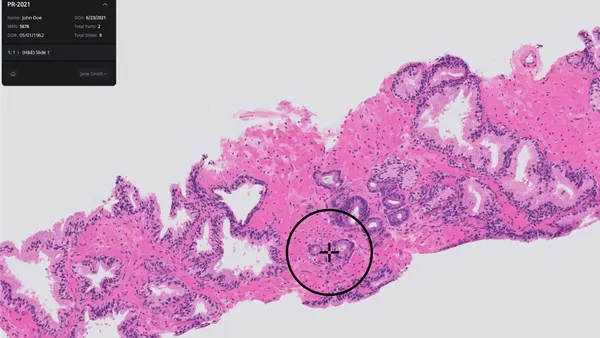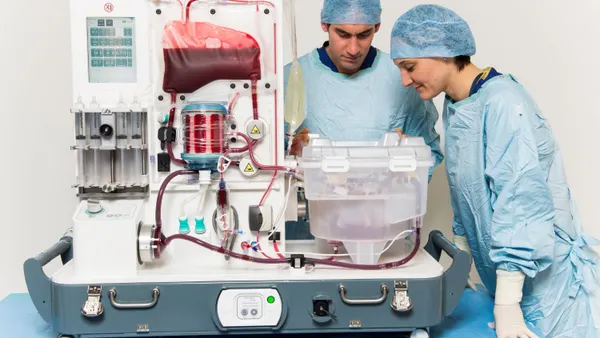Dive Brief:
- Only 12 healthcare transactions were announced in the first quarter of this year, which was the fewest during any first quarter since Kaufman Hall began tracking hospital M&A in 2016, according to a report out Thursday.
- No mega transactions — defined as deals where the seller's or smaller parties' annual revenues exceed $1 billion — occurred in Q1, and four of the 12 transactions involved a smaller party with an average revenue of less than $100 million, the report found.
- Experts with Kaufman Hall called the results an "interesting anomaly" and said in the report they expect activity to pick back up in the space.
Dive Insight:
Hospital M&A activity has slowly declined since the pandemic began, though the size of deals grew substantially last year.
The number of "megamergers" nearly doubled in 2021 compared to the year prior, driving the average size of the seller or smaller party to a record $619 million, according to Kaufman Hall.
But that trend came to a halt in the first quarter of 2022, when both the amount and size of deals shrank.
The 12 deals announced in the first quarter are down slightly from 13 during the same period last year, and down significantly from 28 deals announced in Q1 of 2020.
The absence of any megadeals also drove down the average size of the seller or smaller party to $246 million in the first quarter.
Total transacted revenue amounting to $2.95 billion was well below historical averages, and down significantly from a record $8.8 billion in the first quarter of 2021.
The first quarter was also defined by for-profit sell-offs. Seven of the 12 deals involved for-profit sellers, and just one deal with a for-profit buyer.
Last year, one of the most notable trends in healthcare M&A was for-profits pushing to realign their portfolios with transactions involving groups of facilities in concentrated markets.
Some examples include Tenet’s $1.1 billion sale of five hospitals and associated physician practices in south Florida to Steward Health Care and HCA's sale of four Georgia hospitals to Piedmont Healthcare for $950 million.
In the first quarter of this year, national health plans were a big player showing continued interest in the healthcare delivery space, with UnitedHealthcare Group's plan to acquire home healthcare operator LHC Group, for example.
Anu Singh, managing director and leader of the partnerships, mergers & acquisitions practice at Kaufman Hall, said in an email to Healthcare Dive that hospitals have been focused this year on helping their communities deal with omicron and on managing operational disruption.
"In the long term, however, the imperatives of scale illuminated by the pandemic will continue to drive increased interest in strategic partnerships between like-minded organizations focused on transforming care in the communities they serve," Singh said.














